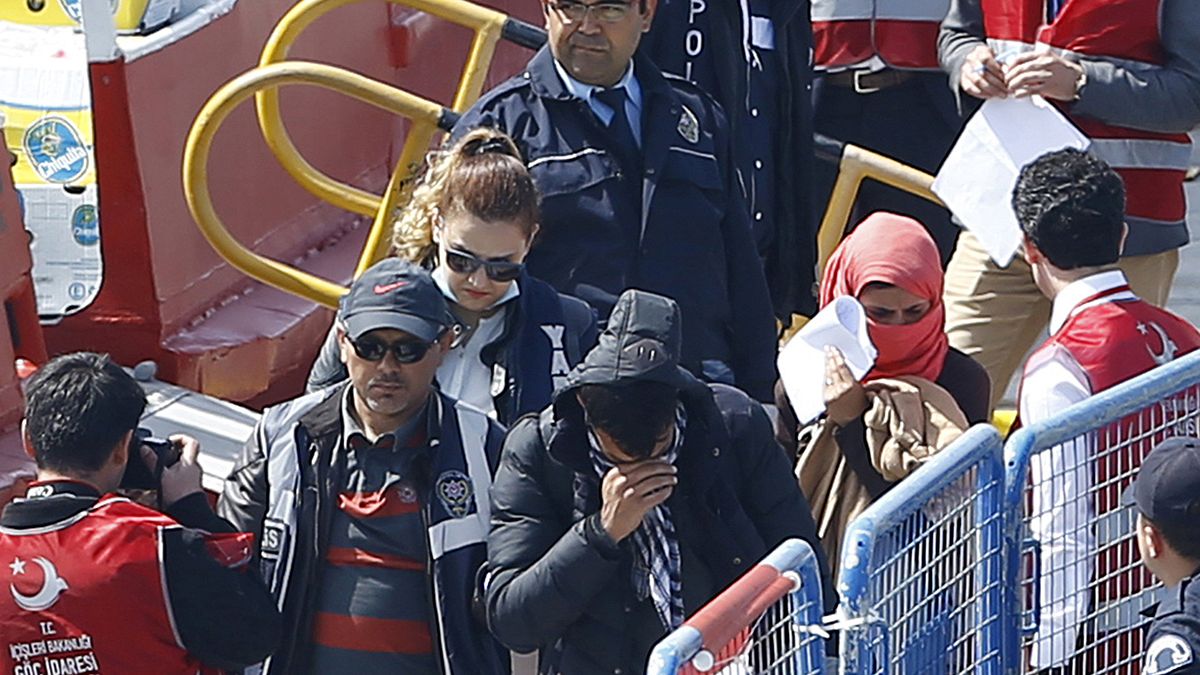The European Commission says the aim of the EU’s deal with Turkey on migrants is to smash human trafficking rings – and replace chaotic, dangerous
The European Commission says the aim of the EU’s deal with Turkey on migrants is to smash human trafficking rings – and replace chaotic, dangerous journeys by organised, safe and legal routes to Europe for those entitled to international protection.
The EU’s deal with Ankara envisages a one-to-one exchange for Syrians, while others – non-asylum seekers and failed claimants – are to be sent back to Turkey.
But it sparked a wave of criticism even before it started.
The UN’s refugee agency (UNHCR) has said that urgent safeguards are needed.
Human Rights Watch has complained of a disturbing disregard for international law.
Several bodies are concerned about whether Turkey is a “safe third country” for refugees who are sent back.
And there is scepticism over whether migrants, especially Syrians, will be deterred from making the perilous journey.
The EU’s agreement with the Turkish government to stem the flow of refugees entered into force on Monday.
Under the agreement, all “irregular migrants” arriving in Greece from Turkey since March 20 face being sent back across the Mediterranean.
Local government officials in Turkey said more than 200 had arrived from Greece on Monday.
The deal has raised concerns amongst rights groups and the UN.
Philippe Leclerc, the representative in Greece for the UN refugee agency, told euronews that the “rushed implementation of this agreement may put people in jeopardy.”
Leclerc said that asylum procedures and legal safeguards for refugees needed to be reinforced in both countries.
“We believe that legal safeguards have to be established both in Turkey and in Greece for the agreement to be legal. And right now that such guarantees have not been guaranteed in each of the two countries,” he said in an interview with euronews correspondent Efi Koutsokosta.
Click on the video above to see the full interview.
